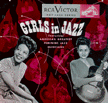
The University of Chicago Magazine
October-December 1996

Education department faces overhaul
A review of the University's Department of Education has resulted in a recommendation that the department be phased out over the next five years, with its function possibly replaced by an interdepartmental committee of scholars from across the University. "The University should seize the opportunity to identify and preserve what is most vital in the department," says Social Sciences Dean Richard Saller, "and to reorganize our efforts at educational research and the practice of teaching to do it more effectively."
Saller proposed the change in late summer after a yearlong review that involved a study by the department itself and another by a committee that included non-University education experts. The division's faculty was scheduled to meet in November to vote on the recommendation, with the final decision to be made by the University's provost and president.
If approved, the restructuring won't be the first for the department, founded by educator-philosopher John Dewey in 1895. Over the years, the University's education research and training has taken place under the auspices first of a department, then a department and the School of Education, and finally a department again. And, Saller points out, Chicago's highlights in education research haven't been limited to the department.
Still, initial reaction to the proposal has included some strong objections (see "Letters," page 5). Eliminating the department, some alumni argue, may reflect negatively on the quality of its graduates. While Saller says he takes such concerns seriously, he does not believe that alumni or current students (who will be able to finish their degree programs) should feel slighted.
"The University of Chicago has been a great leader in the theory and practice of education," he says, "with a distinguished past that won't soon be forgotten. If graduates have done good work themselves, the value of their degrees shouldn't be affected."
Even some of the proposal's critics concede that the education department lacks a strong sense of direction. According to Saller, the department's self-study recommended a smaller, more focused faculty, specializing in three areas of doctoral research. That plan would mean trimming current programs leading to practical teaching degrees (M.A.T.'s)--programs that have received less emphasis than research since the mid-1970s.
The self-study was given to a review committee consisting of two senior faculty from other U of C social sciences departments, plus two outside education experts picked from a list suggested by education chair Robert Dreeben. The committee then gathered additional data and met in May to interview some senior department faculty and administrators.
The external report pointed to several problems, including "uneven" faculty research, isolation within the division, and "low expectations." Evaluating the self-study's renewal plan, the second team concluded that, in Saller's words, "the prospects for rebuilding the department to the standard of quality expected in the University and the division are not good."
Neither the external report nor his subsequent recommendation, says Saller, was driven by budget concerns, despite one press speculation that the department was "a likely cost-cutting victim." Nor, he says, does it represent an abandonment of education scholarship and research, work he calls vital to the division and the University.
In his plan, Saller has pledged to "work vigorously to preserve the valuable activities of the department"--such as education professor Anthony Bryk's Center for School Improvement and the English M.A.T. program--"but through affiliation with different units," pointing to work already being done in the School of Social Service Administration, the Harris Graduate School of Public Policy Studies, and other social sciences departments, as well as in the humanities and physical sciences divisions.
According to Saller, the provost and the president have agreed to appoint a working committee from around the University to formulate a plan to continue educational research and teacher training within a different organization. Through a restructuring, he notes, it might be possible to build on the highly regarded M.A.T. in English program, run by Professor George Hillocks.
"I'm a Roman historian," says Saller. "The Roman Empire was a great tradition, too, but that alone didn't keep it afloat. We've reached the point at which it's necessary to move on. We really need to do better in the future--and to figure out how to do it."
In this department:
Also in the Journal:
Plus items For the Record.
Go to:
- INVESTIGATIONS
- CHICAGO JOURNAL
- EVENTS
- LETTERS
- CHICAGOPHILE
- Feature story, "The Strange Laboratory of Dr. LaBarbera"
- Feature story, "Strength in Numbers"
- Special Report, "Building a Strong Cornerstone"
- Feature story, "The Wirszup Factor"
- CLASS NEWS
- DEATHS
- BOOKS BY ALUMNI
- IN THE CLUBS
Return to October-December 1996 Table of Contents
